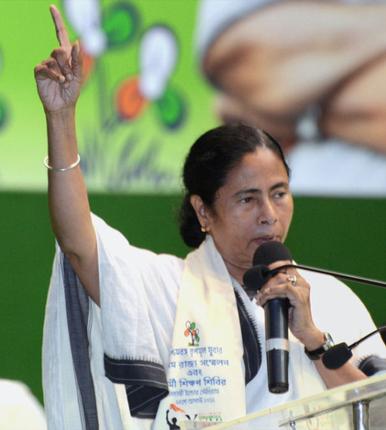
It was spreading canards against her government, she alleged and cautioned it against being a “nuisance” or transgressing its limits.
“Do not teach me about law. I am aware of the codes of the police, media and even political parties,” Ms. Banerjee said while addressing the first convention of Trinamool Yuva — the party’s youth wing.
Alleging that this section of the media was paying people to entice them into making false allegations against her government, she said political parties were being used as “guinea pigs” for the business interests of media houses.
Ms. Banerjee urged the Trinamool Yuva representatives to use social networking sites to counter the misleading, anti-government campaign with well-argued statements. “The most important work of the Trinamool Yuva is building up the party’s image.”
Highlighting the various activities taken up by her government, she said peace was restored in Darjeeling and Jangalmahal but her critics persisted with hollow allegations.
“Those who underestimate the Trinamool Congress should bear in mind that the party will be a force to reckon with at the all-India level.”
Criticism against the government started with infant deaths in state-run hospitals, followed by ‘farmer suicides’ where any suicide was labelled as that of a farmer, and now there was a conspiracy to insult women by referring to the frequent rape cases, Ms. Banerjee said.
She assured the people that action would be taken against any genuine incident of crime against women, but said it was becoming difficult to ascertain whether there was truth in such allegations.
Stating that it had been only a year since the Left Front government was voted out of power, Ms. Banerjee asserted that “people will not forgive those who are working as agents to bring them back to power.”
Police complaints would have to be made and strong action should be taken, as documents and files related to the Left Front government had gone missing, she added.





Comments
Add new comment